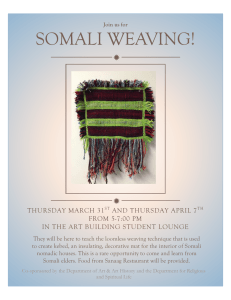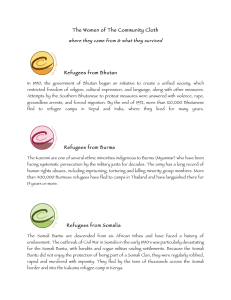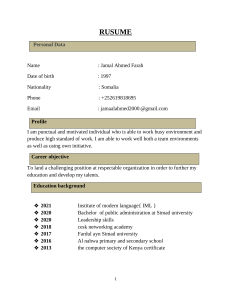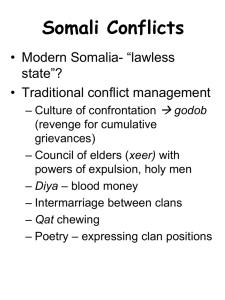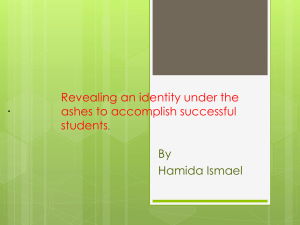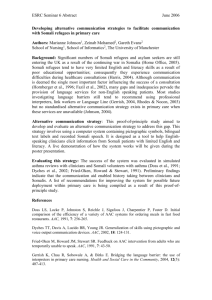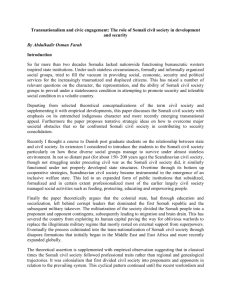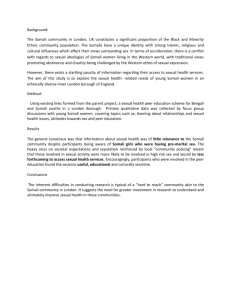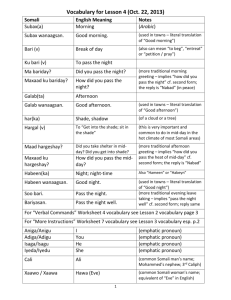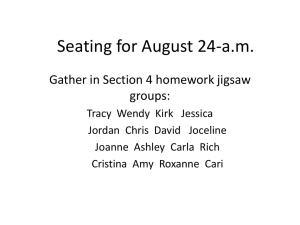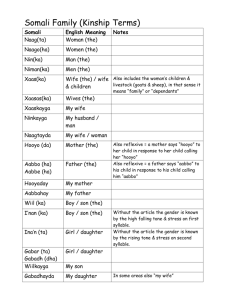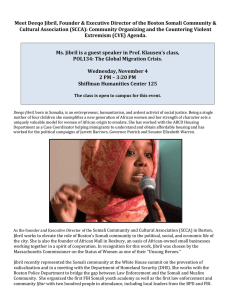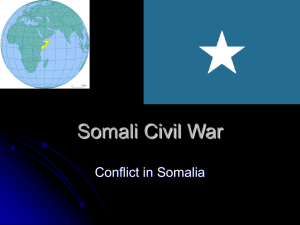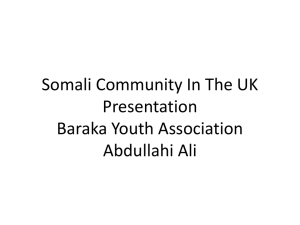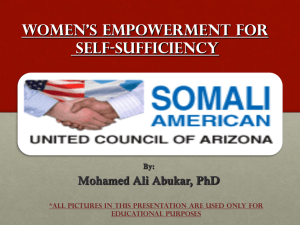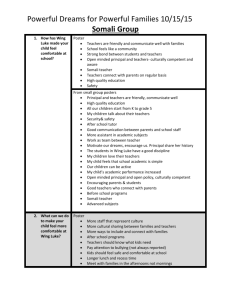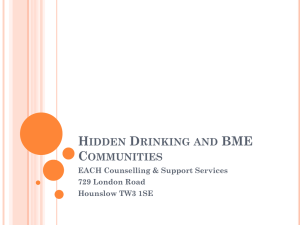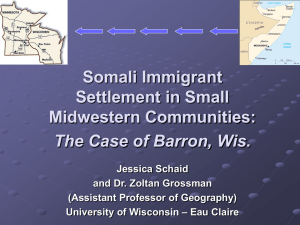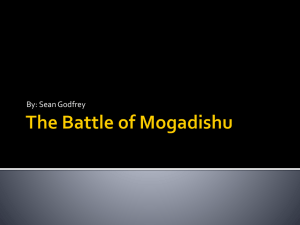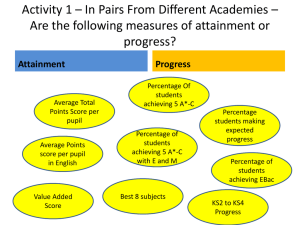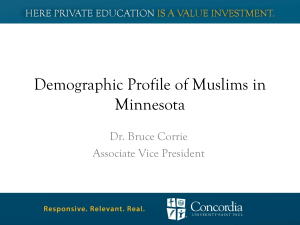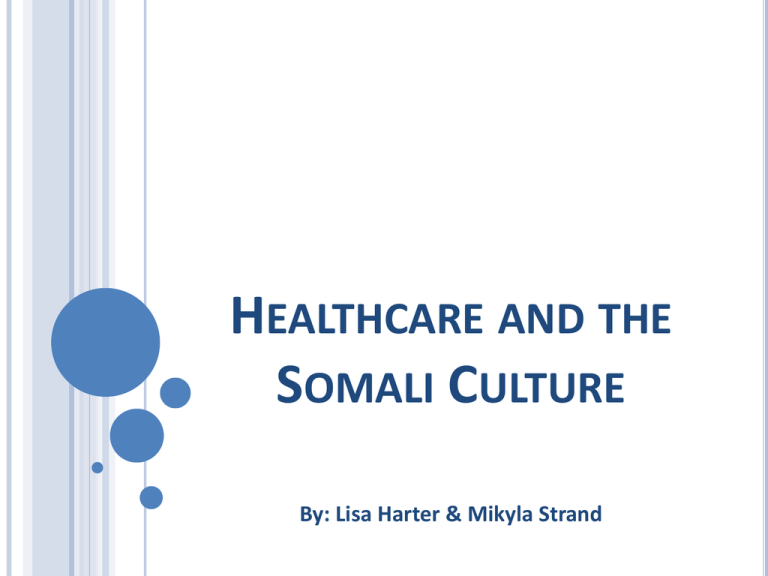
HEALTHCARE AND THE
SOMALI CULTURE
By: Lisa Harter & Mikyla Strand
OVERVIEW
Background
Community
Partner
Somali Elders Council (SEC)
Services Offered
Brochure Information
Cultural competence
Gender sensitivity
Tips of culture competent care
BACKGROUND
In
1990, Minnesota had fewer than 5,000
residents that were born in Africa(Immigration
in Minnesota-discovering common ground,
2004).
As of today, Minnesota has the largest number
of Somalis in the U.S., an estimated 50,000
(Stratishealth, 2010)
COMMUNITY PARTNER
Alikhadar Yusuf is a Somali Elders Council member.
He has been with the organization for 6 months.
He has been in the United States for about 9 years.
He graduated from St. Cloud State with his bachelor's
degree and is currently working on his Masters.
He hopes to someday get his PhD and become a
politician.
Ali sets up the training and community outreach
meetings with local organizations.
SOMALI ELDERS COUNCIL (SEC)
Provides
a first learning experience for newly
arrived immigrants and refugees who do not
have language and living skills necessary to
thrive in the community.
Help develop skills in:
Conflict resolution
Leadership
Advocacy
Training
Community organization
SOMALI ELDERS COUNCIL (SEC)
They
offer an array of services to help
immigrants and refugees acclimate to
their new community.
Also to help the Somali immigrant and
refugees to achieve a greater level of
independence.
SERVICES OFFERED
English
language classes
Basic computer skills
Mathematics
Citizenship and civic test preparation
Social services
Financial assistance and health services
School enrollment
Educational opportunities for adults
SERVICES OFFERED CONT
Domestic
abuse training
Integration into society after incarceration
Conflict resolution training
Community relations trainings
Volunteer services
CULTURAL COMPETENCE
In the medical field, healthcare providers should make it
a point to be familiar with the culture of their patients.
May expect someone with a different belief to conform
to our way of doing things.
Having an interpreter on hand to handle any
miscommunications.
Getting to know the Somali culture can:
Make patients with these beliefs feel comfortable.
Make them feel thought of in the healthcare process.
GENDER SENSITIVITY
In the Islamic religion, having physical contact with
someone of the opposite sex that is not your marriage
mate is not acceptable.
A female patient would want to see a female doctor.
A male patient would want to see a male doctor.
Few exceptions:
Extreme circumstances
Emergency
Only one doctor in that specialty
TIPS FOR CULTURE COMPETENT CARE
When
asking a Somali patient about their
symptoms, they may say that it hurts all over.
Depression, anxiety, and PTSD are common
among Somali refugees.
Immunizations are required to receive their
green card.
Explain the importance of immunizations.
TIPS CONTINUED
Provide
information on why well-child check ups
are important.
Express the importance of being active and
maintaining nutrition.
Changes in medication schedules during
Ramadan may be needed since during this time
Somali’s may be fasting.
WORKS CITED
Immigration in Minnesota-discovering common ground. (2004).
Africa- Focus on Somalis. Retrieved 1/27/10 from
www.minneapolisfoundation.org/immigration/africa.htm.
Stratishealth.(2010). Somalis in Minnesota. Retrieved 1/27/10
from www.culturecareconnection.org/matters/diversity/soamli

